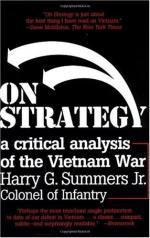|
This section contains 4,513 words (approx. 16 pages at 300 words per page) |

|
SOURCE: "Novel into Film; Novelist into Critic: A Clockwork Orange … Again," in The Antioch Review, Vol. 32, No. 3, 1973, pp. 427-36.
McCracken is an American critic and educator. In the following essay, he argues against interpreting A Clockwork Orange as a didactic novel concerning free will, taking issue specifically with Burgess's stated intentions for the book. He also notes some of the significant differences between the novel and the film.
Although A Clockwork Orange had a respectable little reputation before its visual enshrinement by Stanley Kubrick, it was not upon its publication widely or intensely reviewed. One of its champions, the late Stanley Edgar Hyman (whose discussion has recently been reprinted in a new edition of the novel), saw the work as a tract about free will, showing the unacceptable nature of the method by which the thug-hero Alex is turned from a free agent, however vicious still capable of...
|
This section contains 4,513 words (approx. 16 pages at 300 words per page) |

|


